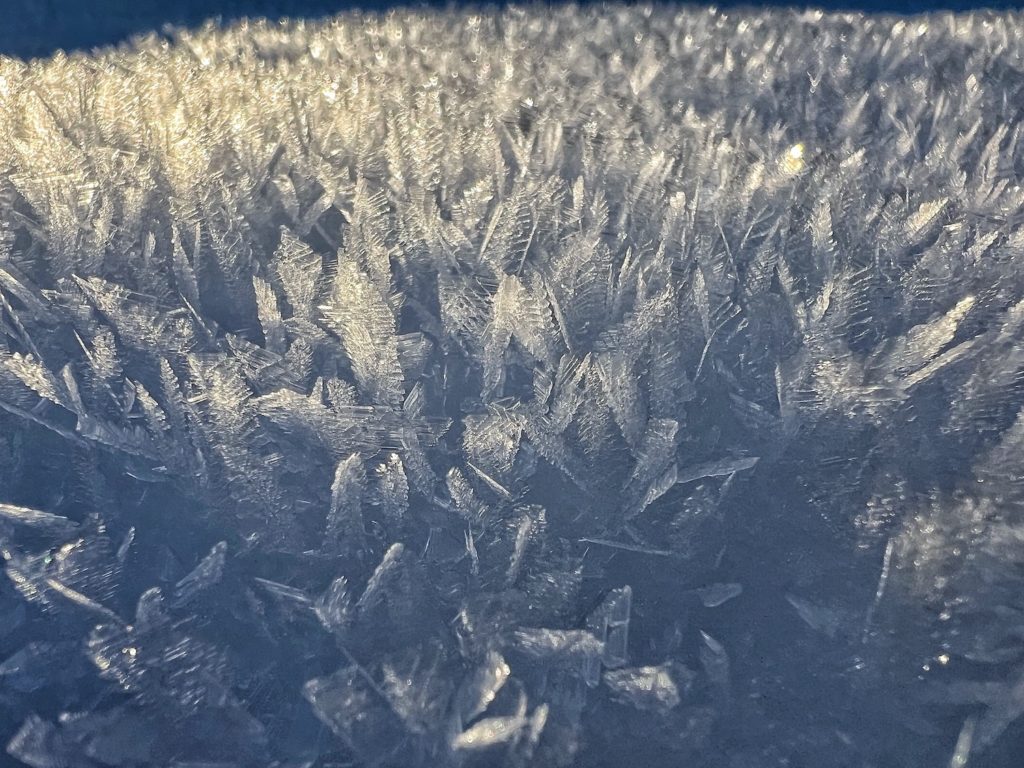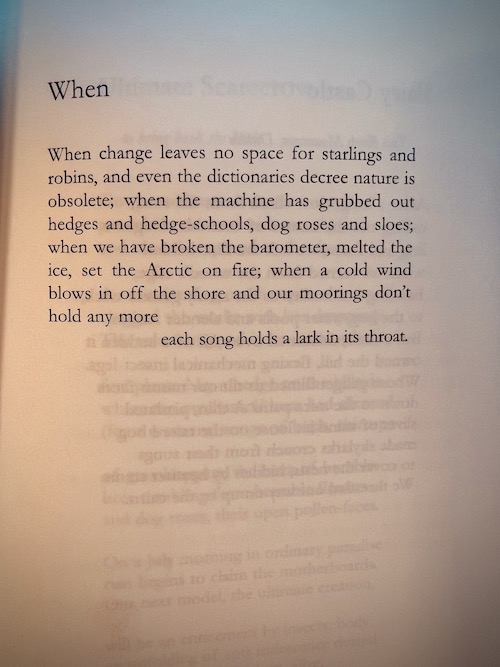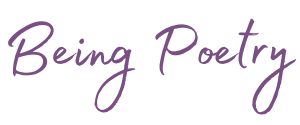
One of the beauties of winter is the dampening of sound, the narrowing in of possible activity. I have friends who get so stir-crazy that they fly to warmer climes where walks in the desert, or drinks on the patio, or swimming at the beach are still possible. But I relish the slower pace of this season and the quiet. Evenings when the predominant sound is the crackle of wood burning and the tick of the stove expanding.
And even though my January work-day feels like the gun-crack leap off the starting line for myriad tasks, my post-dinner evenings have room for poetry – both the reading and the writing. Perhaps because of the pace of the season and my ability to take breaks during the day to walk with my small dog or to stand for a moment on the porch and count magpies, the still close to five hours of darkness I have between waking and sunrise, I have the luxury and responsibility to listen closely to the world.
Some wisdom from Jane Hirshfield in an incredible brief interview by Ilya Kaminsky:
To write for me has been always a process, first, of listening, not speaking; I wait for word-following words, for image-following sentences, for tone-following tones, then transcribe what arrives until a new path through the impenetrable thicket comes—sometimes—open.
Jane Hirshfield at McSweeney’s
…Questions are listened for. Response is listened for. Other things are also opened to rather than willfully made. A poem is the thinking and saying a person can do only with the whole life present, in all its dimensions. With emotions and story, music and history. With the body and all its senses, including memory, including the proprioceptive senses of ethics and non-excluding compassion. With whatever resides in the encyclopedia of association. With the reservoirs of knowledge, music, and multiple possibilities that reside in language itself. Then, too, there is the welcoming of chiaroscuro, cross-hatch, complexity, paradox—more than one thing happens in any poem that is worth its ink. Then, too, the need for peripheral vision: what can be seen or said directly doesn’t need a poem. And last, the need for silence, which allows a poem to enact and complete itself in what lives in us beyond and outside of words.
It is the quiet, both sonically and energetically, that allows me to create.
Books of poetry read this week:
Spindrift by Vona Groarke
Island and Atoll by Jane Robinson

From Island and Atoll by Jane Robinson, published by Salmon Poetry

Leave a Reply